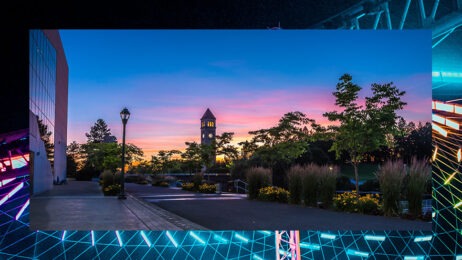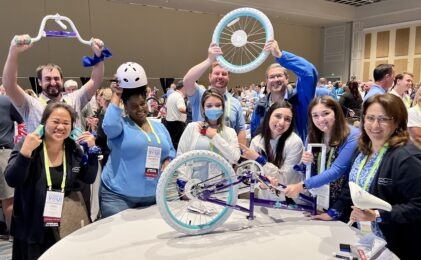Hard Rock International and Seminole Gaming partner with Twentyfour-Seven Inc.
“It’s a hard reality that the industry has to face but we have to acknowledge it. We have to ask ourselves, ‘What do we do to combat?'” – Paul Pellizzari, Vice President of global social responsibility, Hard Rock International
One of the ugly truths of the hospitality and gaming industries is the prevalence of human trafficking victims and perpetrators passing through hotels and casinos, more often than anyone would want to know. Hard Rock International and Seminole Gaming have acknowledged the issue and have implemented Corporate Social Responsibility (CSR) and Environmental, Social and Governance (ESG) programs to train employees to spot certain warning signs that could possibly be an alert of human trafficking situations. Paul Pellizzari, vice president of global social responsibility for Hard Rock International, sat down with Smart Meetings to discuss the partnerships Hard Rock has acquired to fight human trafficking and how the company is furthering its efforts both domestically and internationally.
Q: How did you get your start in hospitality and Corporate Social Responsibility?
Read More: CSR Fights Hunger
A: I joined the company for my background and the work I was doing in social responsibility. I started off doing evaluations of companies, what today would be called ESG. I was recruited by the biggest gaming company in Canada called Ontario Lottery and Gaming. They were having a problem with gambling and they needed their social responsibility programming across all areas built up with a focus on the gambling problem. That’s when I entered the space in 2007.
Q: How did the partnership between Hard Rock International and Twentyfour-Seven Inc. to fight human trafficking in the hospitality and gaming industries begin?
A: The founder of Twentyfour-Seven Inc. is a woman named Tsvetelina “Lina” Thompson. She is a trafficking survivor and I met her through our networks in Florida. We are part of the broader community dealing with human trafficking in South Florida. That includes law enforcement, support agencies, and groups like FLITE Center. It is through these types of events that I met Lina and she told me her story.
Q: What were some of the ways in which the partnership with Twentyfour-Seven Inc. contributed to Hard Rock International’s CSR and ESG programs?
A: Lena told me about the QR code. You may have seen, if you have been in the airport or other places, posters that say, “Be aware of human trafficking, if you see something call this 1-800 number,” right? What Lena was putting forward was a much more effective way of connecting potential victims to help resources. So, we just immediately said, “we have to learn more about this.” When I found out that there was no hospitality company that was actually implementing it, I said, “Well, we’re going to be the first one.”
Read More: Half Million Hotel Workers Trained in Human Trafficking Awareness
We have to train front of house to recognize the signs. We have to train for people who are in the bathrooms, elevators, parking garages—places that are accessible and that someone who is being trafficked can discreetly be able to pull out their phone and scan.
Q: What are some of the most successful programs to combat human trafficking that Hard Rock International has implemented?
A: Social Identity Quest is a mandatory part of educational curriculum. It is designed to speak to teenagers and youth about their experiences on social media. It’s important. It’s an important area for us to address because a lot of human traffic luring is happening on social media. So, the whole idea is—how do we improve online safety literacy amongst youth? So we find the right partners, which we have, and we create a great education program and get it into schools.




